TEHRAN(Bazaar): Following the International Atomic Energy Agency (IAEA) Director-General Rafael Grossi's visit to Iran and his meeting with Iranian officials, it was decided that Iran would have access to the two sites where the IAEA claimed that the secret nuclear activity was done and IAEA inspectors inspected these two places.
The IAEA's claims about the secret activity in the two places, was based on the claimed files by Israeli Prime Minister Benjamin Netanyahu, who claims the documents were stolen by Israel from Iran.
While Iran has authorized the Agency to inspect the two sites, it has explicitly stated that the issue of claimed document must be closed.
In this regard and based on the importance of this issue, Bazaar reporter spoke with Behrouz Kamalvandi, Deputy head of Atomic Energy Organization of Iran (AEOI) for international, legal and parliamentary affairs and spokesman of the organization about the inspection permission of IAEA based on Netanyahu's claimed documents, strategic measurements` plan to lift sanctions and Nuclear Non-Proliferation Treaty and etc.
Following is the text of the interview:
Bazaar: Rafael Grossi, director general of the International Atomic Energy Agency, visited Iran in September following an inspection of two places in Iran by IAEA, according to the claimed documents by Benjamin Netanyahu, who claims the documents were stolen by Israel from Iran and Iran has lied about its nuclear program. Iran had stated that it would allow the IAEA to inspect if questions related to claims of the past activities were closed by inspecting the two sites. on the other hand, Mr. Grossi had claimed that in a meeting with Iranian President Hassan Rouhani, he had told Mr. Rohani that the performance of the agency is technical and professional and they would resolve any questions by negotiating and holding such meetings. So, if the IAEA again requests a response from Iran based on Netanyahu's claimed documents or wants to visit possible claimed sites, would Iran allow the IAEA to do so?
Kamalvandi: The International Atomic Energy Agency's requests to access, have a specific framework.
In fact, these requests are defined in the form of a safeguards contract and an additional protocol. We have a set of safeguards and protocol tasks. Within the framework of the protocol duties, the Islamic Republic of Iran submits statements and regarding these statements, IAEA can ask some questions and request explanations from Iran and even about access, including concerning the places where is declared within the site in the statements.
There are also cases that IAEA may discuss regarding undeclared sites which also has its own mechanism and it is the so-called Agency `s request under Article 5c of the Additional Protocol that IAEA may Specify and ask questions in the context of protocol issues; of course not every place without explanation to the member country.
Therefore, it is the right of each member state to ask the IAEA to explain why it is asking these questions and whenever it is convinced, the state can answer the questions and, if necessary, provide access to the surrounding area of that site not only itself.
So, the type of interaction between the Member State and IAEA is quite clear. Concerning some issues which are related to the past activities, due to this matter that we have had unfortunately cases under the name of "PMD" or the so-called possible military dimensions in the past that they had given political maneuvers on it for some years, finally in JCPOA discussions in 2015, one of our conditions was that these issues must be closed once forever.
At the time, in coordination with the Supreme National Security Council, the mechanisms were designed to give some access to the Agency and answer some questions. So, the case was eventually closed forever.
Therefore, there should not be discuss some questions about the past issues. Some time ago, IAEA raised the issues that we did not accept and so eventually led to the issuance of a resolution against our country.
After that, the two places had negotiations and finally we conclude that the access to two places should be given forever. These two places are not a nuclear site, but two places away from the city.
It was decided to examine these two places whether there is nuclear material is there or not and nuclear activity is done or not.
So, the agency inspected these two places. We have already issued a joint statement within which these measures could be taken. A report was then submitted by the Director General. Therefore, the accesses are in accordance of a set of rules. In such cases, we stated them in that statement.
Also, in the interview of the head of AEOI, Dr. Ali Akbar Salehi, it was emphasized that we will not give any access to past issues and access will be done within the framework of protocol and safeguards issues, but if it is other than these issues, strong legal foundations and documents must be provided.
So they can have a question or request based on our own report (Report for Safeguards and Statement for Protocol) and nothing else.
Bazaar: strategic measurements` plan to lift sanctions is being considered by the Commission of National-Security and Foreign-Policy (of Islamic Parliament of I.R.Iran). If this plan is approved, Would the Atomic Energy Organization of Iran (AEOI) have the technical possibility to fulfill its provisions? How long does it take to technically implement it?
Kamalvandi: Regarding the strategic action of lifting the sanctions which is considered by a number of MPs, the Iranian Parliament Commission on National Security and Foreign Policy is currently investigating it.
We have held several meetings and discussed the technical and political aspects of its safeguards. Of course, I.R.Iran Ministry of Foreign Affairs also has its own considerations. Ultimately, the decision must be made based on all aspects.
But, the important matter is the demands of the esteemed MPs in the technical fields, including the capabilities of the Atomic Energy Organization of Iran, which can be fulfilled.
We participated in this meeting and explained that these issues can be realized according to the technical capabilities of the organization.
Finally, it is depended on the esteemed Parliament to decide and they will probably make the necessary arrangements. Therefore, if it is passed by law, the Atomic Energy Organization will implement it.
Bazaar: Is AEOI considering the technical considerations of this plan?
Kamalvandi: Regarding the relevant issues to the provisions of this plan, the Atomic Energy Organization of Iran has almost certainly offered its views, only if other matters are not stated.
Bazaar: Regarding the fire at the Natanz nuclear facility, it was announced that the incident was the result of a kind of "industrial sabotage". Have foreigners involved in this explosion?
Kamalvandi: As previously announced, concerning the incident of sabotage on the site of Shahid Ahmadi Roshan in Natanz, this incident is a sabotage and as far as I know, the alien agents were also involved, but, regarding the persons and the level of sabotage, the country and even the spy organization which is involved, the Atomic Energy Organization does not know. Security officials, especially the Supreme National Security Council, are aware and will provide additional information if it is necessary.
Bazaar: Some discuss that one of the reasons for Biden's imminent negotiation with Iran, is that Iran is approaching a time of nuclear escape and the Agency's report on enriched uranium reserves shows the level of enrichment. What is your assessment of this argument?
Kamalvandi: There are some discussions, rumors and speculations in the international media about the possibility of negotiations and its relation to issues such as the accumulation of nuclear material. We do not have access to this matter, but what is certain is that the accumulation of enriched nuclear material in our country is based on the planning that we did.
Earlier that, we pledged not to have more than 300 kilograms of enriched material reserves and to export the surplus to the foreign countries. After decision to reduce steps to reduce
commitments, we increased our productions under the Articles 26 and 36 of the JCPOA which gives Iran the right and allow to suspend some parts of its commitments. We have increased the amount of our production and now we have produced almost 3,800 kilos which is increasing every day, but whether there is a negotiation or not is occured, it is up to the decision of the Ministry of Foreign Affairs and the political and senior officials of the system. So, if it is necessary, they will inform then.
Bazaar: Treaty on Prohibition of Nuclear Weapons has reached quorum required to be enforceable i.e. it was approved by 50 countries and will be enforceable after 90 days as of Jan. 22, But, the NPT ignores the issue of disarmament and focuses on "non-proliferation". What steps will Iran and the countries of this treaty take to make it operational? Is Iran's withdrawal plan from the NPT which was discussed in the Parliament, still being discussed?
Kamalvandi:In the case of the Nuclear Non-Proliferation Treaty, the decision was taken at the UN General Assembly, while most countries are dissatisfied with the non-responsiveness of the NPT mechanism, which has two parts, one of them is described as disarmament and the other is non-proliferation. Only a part of it has been considered so far.
As it is clear in the form of your the question, over the last 50 years, the second part i.e. non-proliferation, has been dealt with extensively, and nuclear-weapon states have prevented other countries from acquiring nuclear weapons, although this is an important issue in itself, but unfortunately the countries with nuclear weapons, which had become numerous in order to give up these weapons, do not have done any measurements about nuclear disarmament.
However, there is a difference between developed, industrialized and nuclear-armed countries in this regard. They discuss that because the NPT has the necessary capacity and the agency now has the necessary oversight, there should be no other treaty, because it may weaken the NPT. so they oppose it.
Many countries, including the Islamic Republic of Iran, have signed the treaty and it is scheduled to be implemented three months after 50 countries ratify it. Of course, when the Islamic Republic signed it, issued a statement stating that this signature does not constitute ratification and will not be imperative if it is not ratified by the relevant authorities, including the Iranian Parliament.
In any case, this is a global effort to eliminate nuclear weapons that are in line with the ideals and ideas of the Islamic Republic of Iran.
We believe that A weapon of mass destruction (WMD) is not in line with our beliefs. The Supreme Leader's fatwa in this regard is quite clear, that is, it is in line with the ideals pursued by a group of countries.
Regarding the possibility of Iran's withdrawal plan from the NPT, the decision is not up to the IAEA, but in my opinion, we should not follow such an option preferably.
Interview by Tahmineh Ghamkhar

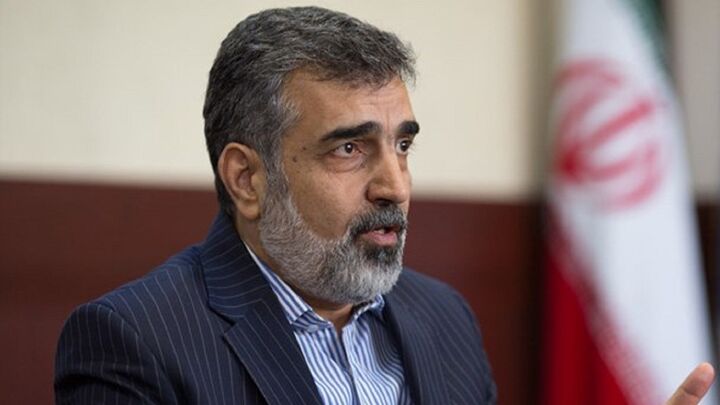



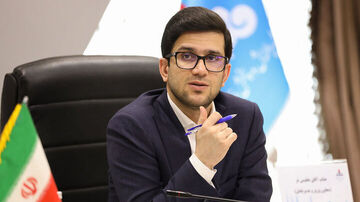



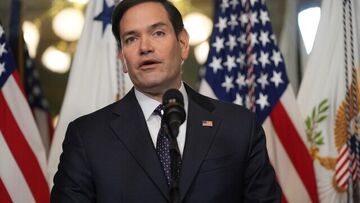


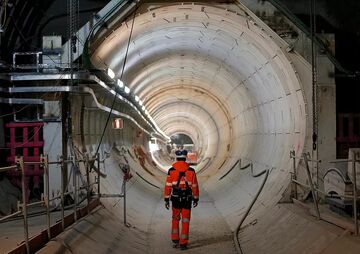
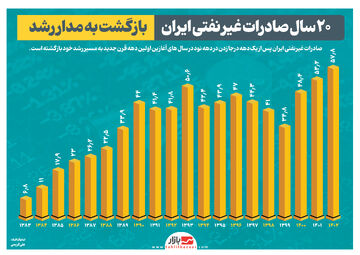
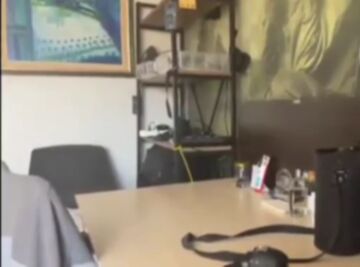
نظر شما